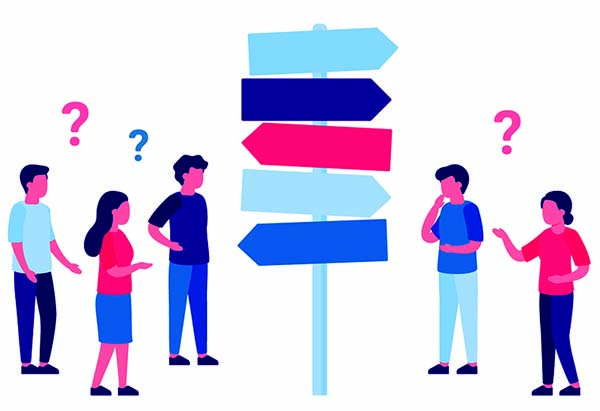Changes in Arizona’s AHCCCS Medicaid System: The Impact on Patients with Substance Use Disorder By Tony Renello, MS LIAC NCCAP NCAC II “Increasing awareness around the importance of substance...
Changes in Arizona’s AHCCCS Medicaid System: The Impact on Patients with Substance Use Disorder
By Tony Renello, MS LIAC NCCAP NCAC II
“Increasing awareness around the importance of substance use disorder treatment and its integration into overall health care can help reduce stigma and encourage individuals to seek help.”
The Arizona Health Care Cost Containment System (AHCCCS) is a vital resource for many residents, providing essential health coverage, including for those facing substance use disorders (SUD). However, recent changes to the AHCCCS Medicaid system are raising concerns about access to care for these vulnerable populations. As the state navigates evolving healthcare policies, understanding the implications for patients is critical.
An Overview
AHCCCS is Arizona’s Medicaid program, which provides health insurance to low-income individuals and families. The program offers a comprehensive range of services, including behavioral health care, which encompasses treatment for substance use disorders. With increasing rates of addiction and mental health issues across the state, AHCCCS plays a crucial role in ensuring individuals have access to necessary care.
The Recent Changes
Several significant changes have been made to the AHCCCS Medicaid system recently, including:
Eligibility Modifications: Changes in income eligibility thresholds and application processes have been implemented, potentially leaving some individuals without coverage. Those experiencing unemployment or financial instability due to the pandemic might find it more challenging to qualify for benefits.
Service Revisions: The Arizona Department of Health Services has adjusted the guidelines around covered services, particularly concerning mental health and substance use treatment. These changes can affect the types and duration of care available to patients.
Provider Network Limitations: A growing number of healthcare providers are exiting the AHCCCS network, citing low reimbursement rates and increased administrative burdens. This can limit the availability of local treatment options for patients seeking help for substance use disorders.
Integration of Services: Efforts to integrate physical and behavioral health services have led to new care models. While intended to improve overall care coordination, these changes can inadvertently complicate access for individuals who primarily seek SUD treatment.
Impact on Patients with Substance Use Disorder
The recent changes have multifaceted implications for individuals struggling with substance use disorders:
Barriers to Accessing Care: With adjustments to eligibility and service coverage, many individuals may find themselves facing new barriers to accessing critical treatment services. For those who do qualify, the limited network of providers can lead to longer wait times for appointments or, in some cases, the necessity to travel long distances to receive care.
Disruption of Treatment Continuity: For patients receiving ongoing treatment for substance use disorders, changes in coverage or service limitations can disrupt their care continuity. This is particularly concerning given the importance of consistent treatment in preventing relapse and promoting recovery. Transitioning between providers can be challenging and can impact patients’ willingness to seek help.
Increased Demand for Services: As awareness of mental health and substance use disorders grows, the demand for treatment services continues to increase. The current changes may not adequately accommodate this rising demand, leading to a strain on existing resources and potential delays in accessing care.
Potential Increase in Health Disparities: Changes in the Medicaid system could exacerbate existing health disparities among marginalized populations. Those in rural and outlying communities may face even greater challenges in accessing care, further perpetuating cycles of addiction and poor health outcomes.
Moving forward: Advocating for Change
As Arizona’s healthcare landscape evolves, advocacy efforts are crucial to ensuring that individuals with substance use disorders retain access to the services they need. Stakeholders, including healthcare providers, community organizations, and patient advocates, must collaborate to address the challenges posed by the recent changes.
Policy Advocacy: Advocating for policy changes that protect and enhance access to care for individuals with SUD is essential. This includes pushing for improved reimbursement rates for providers, expanded eligibility criteria, and increased funding for substance use treatment programs.
Community Support Services: Strengthening community-based support services can help bridge gaps in care. Initiatives that focus on outreach, education, and peer support can provide additional resources for individuals navigating the complexities of substance use treatment.
Raising Awareness: Increasing awareness on the importance of substance use disorder treatment and its integration into overall health care can help reduce stigma and encourage individuals to seek help.
Let’s Work Together
As the state implements changes, it is imperative that policymakers, healthcare providers, and advocates work together to ensure that access to care remains a priority. By addressing barriers and fostering a supportive environment for recovery, Arizona can better serve its residents struggling with substance use disorders and improve overall health outcomes for its communities.
 Tony is a seasoned hospital administrator in the behavioral health field, and has demonstrated proven leadership experience in driving organizational success and fostering a culture of excellence. He has consistently positioned the behavioral health hospitals he has managed and helped open to have the best and most compassionate care and clinical excellence.
Tony is a seasoned hospital administrator in the behavioral health field, and has demonstrated proven leadership experience in driving organizational success and fostering a culture of excellence. He has consistently positioned the behavioral health hospitals he has managed and helped open to have the best and most compassionate care and clinical excellence.
Schedule a meeting with Tony at https://calendly.com/tony-davinciconsultingservices/

































